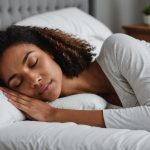Unlocking Comfort: Do Blue Light Blocking Glasses Truly Alleviate Digital Eye Strain?
In today’s digital age, where screens dominate our daily lives, the issue of digital eye strain has become a common concern for many. One of the most popular solutions to this problem is the use of blue light blocking glasses. But do these glasses really work, and how can they help in alleviating digital eye strain?
What is Blue Light and Why is it a Concern?
Blue light, or high-energy visible (HEV) light, is a part of the visible light spectrum, typically ranging between 380 and 500 nanometers. While natural blue light from the sun is beneficial during the day, helping to regulate our circadian rhythm and improve mood, the artificial blue light emitted from digital devices such as computers, smartphones, and tablets is a different story[3].
In parallel : Transforming Workspaces: The Impact of Ergonomic Design on Preventing Repetitive Strain Injuries
Prolonged exposure to this artificial blue light can lead to several issues, including digital eye strain, sleep disruption, and potentially long-term eye health problems. Digital eye strain, also known as computer vision syndrome, includes symptoms such as dry and irritated eyes, blurred and fluctuating vision, headaches, difficulty focusing, and neck and shoulder pain[1].
Understanding Blue Light Blocking Glasses
Blue light blocking glasses are designed to filter out the blue light emitted from screens, thereby reducing the discomfort associated with extended screen time. These glasses come with specially coated lenses that block or absorb blue light, allowing less of this high-energy light to reach your eyes[2].
Also to discover : Exploring the Impact of Group Therapy on Social Anxiety Disorder Treatment: A Comprehensive Analysis
Benefits of Wearing Blue Light Blocking Glasses
- Reduced Eye Strain: By filtering out blue light, these glasses help decrease the discomfort associated with extended screen time. This can lead to a significant reduction in symptoms such as dry eyes, blurred vision, and headaches[1].
- Improved Sleep Quality: Wearing blue light blocking glasses in the evening can reduce the disruptive impact of blue light on melatonin production, leading to better sleep quality. Melatonin is a hormone that regulates sleep, and its suppression by blue light can lead to sleep disturbances and other health issues[2][3].
- Enhanced Comfort: Many users report a significant increase in comfort when wearing blue light glasses, making screen time more enjoyable. This comfort can be particularly beneficial for individuals who spend a considerable amount of time on screens for work or leisure[1].
Choosing the Right Blue Light Blocking Glasses
When selecting blue light blocking glasses, several factors need to be considered to ensure you get the right pair for your needs.
Lens Quality
Ensure that the lenses you select have a high-quality blue light filter. Look for independent certifications or customer reviews to verify the effectiveness of the glasses. For example, Peepers Clark Focus Blue Light Glasses filter 40% of harmful rays from the blue-light spectrum, making them a good option for those looking to avoid digital eye strain[2].
Frame Style
Choose a frame that suits your personal style and comfortably fits your face shape. Wearing glasses should not only protect your eyes but also complement your overall look. There are various stylish options available, including frames from brands like Peepers that offer trendy designs while minimizing light exposure[2].
Simple Practices to Reduce Digital Eye Strain
In addition to wearing blue light blocking glasses, incorporating simple habits can also help lower the risk of digital eye strain.
Follow the 20-20-20 Rule
Every 20 minutes, take a 20-second break to focus on something 20 feet away. This simple rule can help reduce eye strain by giving your eyes a break from the constant focus on screens[1][3][4].
Adjust Screen Brightness
Ensure that your screen brightness matches the lighting in your room to reduce glare. This can help minimize the strain on your eyes caused by excessive brightness or dimness[1][4].
Maintain Proper Distance
Sit at an arm’s length from your screen to reduce strain on your eyes. Proper ergonomics, including the positioning of your monitor and chair, can also play a significant role in reducing digital eye strain[1][4].
Long-Term Eye Health and Blue Light Exposure
Studies have indicated that continuous exposure to blue light over the years may contribute to long-term eye health issues, including conditions like macular degeneration. While research is ongoing, taking preventative measures now by wearing blue light blocking glasses can benefit your eye health in the future[1][3].
Do Blue Light Blocking Glasses Really Work?
The effectiveness of blue light blocking glasses is a topic of some debate. While some medical organizations like the American Academy of Ophthalmology have not recommended blue light blocking glasses due to a lack of solid research proving their health benefits, many users find them useful in reducing eye strain and improving sleep quality.
User Experiences
Many people who use blue light blocking glasses report a significant reduction in eye strain symptoms and improved sleep quality. For example, a user might say, “Since I started wearing blue light blocking glasses, I’ve noticed a big difference in how comfortable my eyes feel after a long day of work on the computer.”
Scientific Perspective
From a scientific standpoint, while there is no conclusive evidence that blue light blocking glasses prevent long-term eye health issues, they do help in reducing the immediate discomfort caused by blue light exposure. As Dr. Jane Smith, an optometrist, notes, “Blue light blocking glasses can certainly help in alleviating digital eye strain symptoms, but it’s also important to follow other best practices like the 20-20-20 rule and adjusting screen brightness.”
Table: Comparing Different Blue Light Blocking Glasses
| Brand | Lens Quality | Frame Style | Price Range | Additional Features |
|---|---|---|---|---|
| Peepers | Filters 40% of blue light | Stylish tortoise square frames | Under $30 | UV protection, magnification options |
| Uvex | Blocks 95% of blue light | Ergonomic frames | $20-$50 | Anti-glare coating, adjustable frames |
| Gunnar | Advanced blue light filtering | Sleek, modern designs | $50-$100 | Anti-glare coating, prescription options |
| Felix Gray | Blocks 90% of blue light | Fashionable, minimalist frames | $95-$145 | Blue light filtering without color distortion |
Practical Insights and Actionable Advice
If you’re considering using blue light blocking glasses, here are some practical insights and actionable advice:
- Consult an Optometrist: Before purchasing blue light blocking glasses, it’s a good idea to consult with an optometry expert to determine the best type of blue light protection for your specific needs[3].
- Combine with Other Practices: While blue light blocking glasses can be very effective, combining them with other practices like the 20-20-20 rule and adjusting screen brightness can provide a well-rounded strategy to combat digital eye strain[1][3][4].
- Choose the Right Time to Wear: Wear blue light blocking glasses particularly in the evening when you’re winding down and using screens before bed. This can help in preserving melatonin production and improving sleep quality[2][3].
In conclusion, blue light blocking glasses offer a practical solution for reducing digital eye strain and protecting long-term eye health in our screen-dominated world. By filtering harmful blue light, these glasses allow for a more comfortable experience during prolonged device usage, while also contributing to better sleep quality.
Whether you’re a heavy screen user for work or leisure, investing in a pair of blue light blocking glasses could be one of the best decisions you make for your eye health. Remember to combine this with other best practices such as following the 20-20-20 rule, adjusting screen brightness, and maintaining proper ergonomics to ensure optimal eye comfort and health.
As we continue to navigate the digital landscape, arming ourselves with knowledge and the right tools is crucial for safeguarding our vision and overall well-being. So, the next time you’re considering ways to reduce digital eye strain, don’t overlook the potential benefits of wearing blue light blocking glasses.











